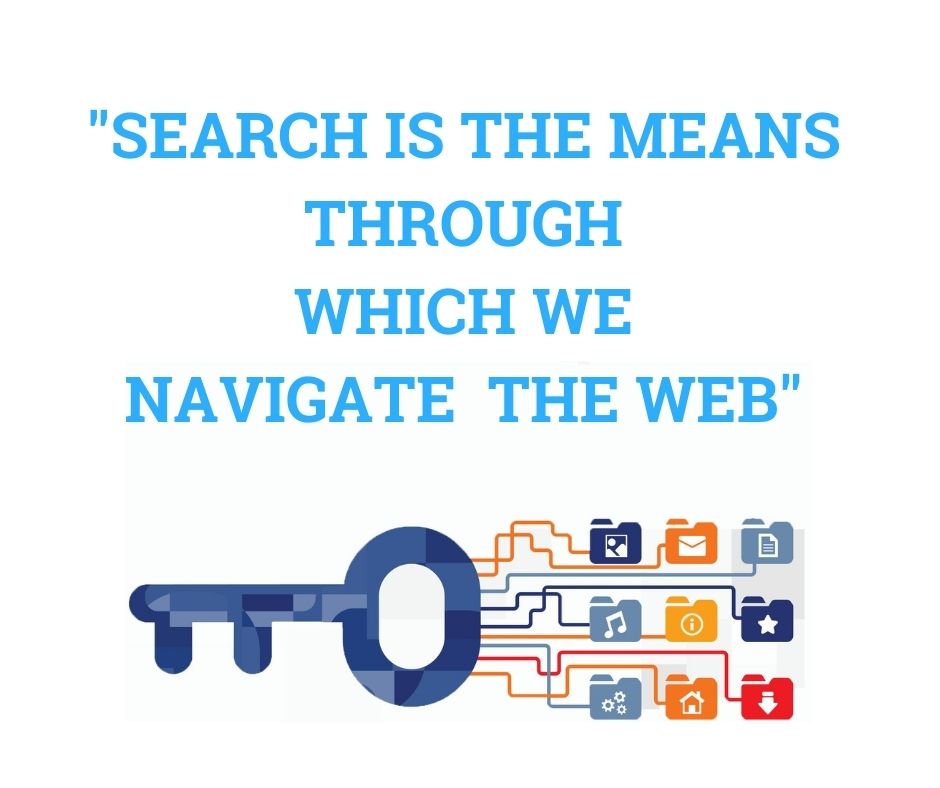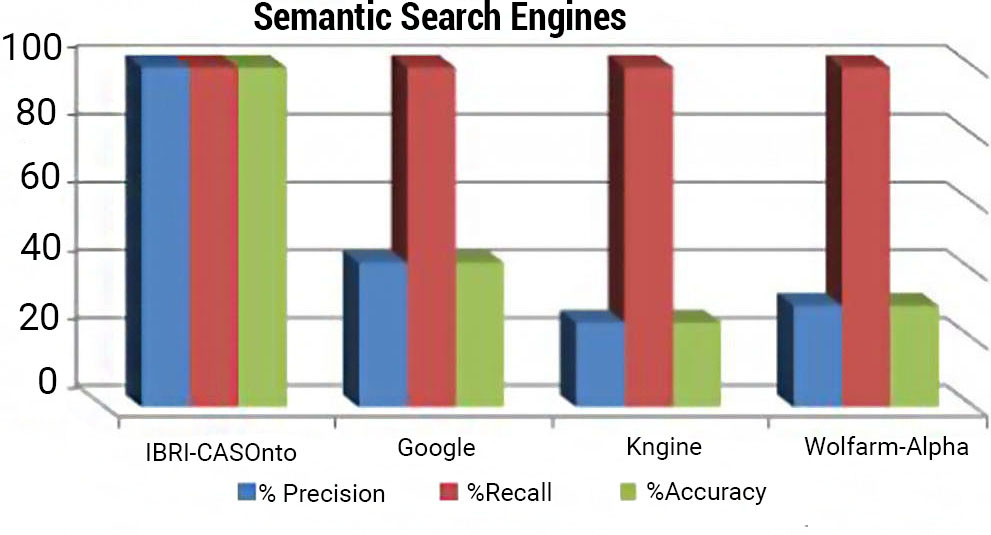SEMANTIC SEARCH
The term semantic relates to that there’s something significance and meaning. When it comes to searching, semantics refers to the knowledge of terms and their logic. Semantic search engine aims to increase search quality by determining a searcher’s purpose from the context.
Semantic search transforms organized and unstructured information into an accessible and flexible dataset using idea mapping, keywords, and natural language algorithms to give more engaging search results. It allows for a better comprehension of the searcher’s purpose.
The extraction of answers to your queries and the delivery of more tailored results. Google’s Graph Database uses semantic search models for any of your queries.
Throughout most terms, semantic search tries to figure out why you’re looking for these specific terms and what you plan to do with the results.
WHY DO ENGINES PURSUE SEMANTIC SEARCH
It’s easy to see whether Google would really want to explore the much more connected world from the viewpoint of a web browser: more information, less junk, a clearer sense of users ’ needs, and more natural language (i.e. chatty) search. Analyzing all of this info improves the chance of their users having the finest search performance available.
Big data becoming the standard for players worldwide, with the world’s data increasing every 2 years. All this kind of data leads to the question, of what this will indicate to each other. For semantic search engine, organizing, and logically correlating material is a prized job.
It aids Google by detecting and eliminating low-quality content. Techniques such as article twisting and keyword research automated features which include latent semantic indexing, latent Dirichletian allocation, and term frequency-inverse document frequency weighting schemes, that used keywords
and their predefined graded connections to qualitative research, make methodologies the same as blog entry turning and keyword analysis more quickly detectable. This implies that search results have a good command of what keywords frequently appear together and really make meaningful connections to help fight spam.
Engines can better comprehend what consumer’s desire by using meanings and object search. The figure below, for example, depicts a simplified representation of the data in an entity-based semantic search algorithm. It consists of nodes that the informal sector (individuals, locations, products, thoughts, or thoughts) are joined.
SEMANTIC SEARCH PRINCIPLES
The following are the two main elements that affect semantic search:
- The specific search goal. The reason somebody types a search into a web browser is called search intent. It has something to do with the user’s goals. The goal of a search is to discover, identify, or purchase anything. By, the research of meaning and word interactions is known as semantics.
- Semantics search vs keyword search refers to the connections between such keyword searches, the parts of speech associated with it, and the information on websites. Search engines can offer results that are more closely tied to the context of the keyword search by integrating semantics, what words indicate, not merely what they will be.

HOW TO IMPLEMENT SEMANTIC SEARCH?
Here are some following steps to implement semantic search:
- Knowing And understanding Google’s Innovation Algorithm
- Semantic Search and Search Engine marketing
- Taking a Complementary and alternative Concept
- Based On google Prioritizes Users in Semantic Search
- Our Approach
1.knowing And understanding Google’s Innovation Algorithm
Whenever it relates to listing on the search engine, semantic search is a big key strategy.
So what is semantic search, and how is it important for search engines?
Semantic search step in understanding user behavior and provide all the reliable information potential context-free. Search engines use artificial intelligence and machine learning-based to mimic natural discussions in sequence to provide a piece of more actual information to their search teams. An improved comprehension of information helps a search tool to service that is provided the search performance of its users.
So, then what was the best approach for keeping your content relevant and away from organic search?
We’ll go over some important ways to help you improve your SEO strategy.
2.Semantic Search and Search Engine marketing
Previously, an information SEO technique was based simply on what other keywords you could fit into one’s copy. Google is becoming more intelligent, and it is going to look as far as how so several keywords you can include in your content.

Even now, the secret to effective content keyword simplification is in one’s overall targeted keywords and how you can use them. Explaining user behavior and focusing on applicable search results are critical components of an effective keyword search strategy.
It also checks for surrounding keyword; these keywords have a significant impact on how Google ranks your site. Semantic search google algorithm can now know the context of a search query/keyword and rank results based on these connections.
Make certain that the keyword’s search term is consistent. Concentrate mainly on a much more specific term using having a good, preferred keyword around your own content to make sure that search intent is useful, although it has reduced search traffic.
Google’s picked purchasing prices as of July 2021
This statistic presents a collection of organizations collected by Google, Inc. since 2003, as well as their own average values. Motorola Mobility has been the internet industry’s more costly buyout in May 2012, costing $12.5 billion.
3.Taking a Complementary and alternative Concept
Even though Google has become intelligent, just has search term optimization technologies. Using keyword optimization tools such as Market Muse could really support the content rise above the ranks of Google’s ever-changing algorithm. Market Muse optimizes your content for semantic search in a comprehensive manner.
Market Muse is an artificial intelligence-powered digital marketing tool that uses machine learning to improve the performance and quality of keyword planning. It makes use of current data on the subject to make you better your SEO strategy. So rather than keyword adding your brand’s content, Market Muse performs an actual semantic analysis and suggested a list of related keywords, as well as the frequency with which each key phrase must be used naturally across the content.
Using human language in having a good content will not only improve the ranking of your search query results. However, it would also improve the quality of decision-making for users. Using a natural content marketing strategy produces refined, expert, and relevant information for your product, and Google will recognize such innovative semantic SEO practices because once scooting your content, helping to boost your rating in search engine results pages (SERP).
4.Based On google Prioritizes Users in Semantic Search
Google prefers semantically optimized content because this wants to provide clients with the most relevant results to their search term. By implementing topically relevant terms and semantic search terms into your content using optimization tools such as Market Muse, you have been starting to put your full effort forth for ranking in the market environment.
Some other possible explanation why semantic search optimization is important is that Google is intelligent, and keyword research is not in the greatest advantage of the user. Keyword stuffing seems to be click
Digital Marketing Strength understands the importance of semantic search in an effective SEO strategy. Users use classification techniques and information grouping to create informative power around a search phrase or search term to confirm we are generating the most meaningful and effective content for our customers.
We can communicate with machine learning algorithms and be a part of the Internet graph database around a given subject by selecting article topics that center on a specific theme but target different searcher intent.
We seem to be eligible to function within the semantic search structure by generating these content groupings, which provide a broader picture of a topic. By focusing on a variety of user intents and link building these articles within the body of the other’s.
baity to search results and is thus devalued in Google’s eyes. As a result, the use of variant keywords and semantic phrases adds SEO value to your information without resorting to relevant keywords.
5.Our Approach
Digital Marketing Strength understands the importance of semantic search in an effective SEO strategy. Users use classification techniques and information grouping to create informative power around a search phrase or search term to confirm we are generating the most meaningful and effective content for our customers.
We can communicate with machine learning algorithms and be a part of the Internet graph database around a given subject by selecting article topics that center on a specific theme but target different searcher intent.
We seem to be eligible to function within the semantic search structure by generating these content groupings, which provide a broader picture of a topic. By focusing on a variety of user intents and link building these articles within the body of the others.
How or when to Take full Advantage of Semantic Search for Your Profit
In simple words, if ones content doesn’t even have semantic relations with the search term, it will not appear in search engine results. The simple solution is to meet your content to the search query in connection with the appropriate strategy.
To stay clear of SEO whenever it relates to semantic search, I suggest you do the following:
- Start concentrating on subjects rather than keywords.
- Confirm that you understand the user’s search intent: would it be to buy? To get to a specific brand’s page? To be educated?
- Raise importance with a hyperlink
- Implement Meta tags.
- Make use of semantic HTML, such as and
- Respond to all pertinent questions about your topic.
Review these items out of your catalog, and you’ll have another superstore for a powerful SEO strategy that incorporates semantic search.
If you are wondering about what is semantic Search Example, here is an example just for you understand how semantic search performs:
Because I searched for “order a pizza” in this case, the outcomes are distorted to local searches,
I searched the internet “start making a pizza” and found a wide range of recipes,
If I could just Google “pizza,” I’ll probably get search results because more users want to process instead of start making themselves. Even so, sometimes when my lookup history is full of pizza recipes, my results for “pizza” will almost certainly be recipes as well due to the customization factor.
Semantic search has an impact on all of the results that and user gets. As a result, a web application can only be function as a result for a particular keyword if the information on the page relates to the framework.
The results for “start making a pizza” would include flavors, preparation time, etc.
Whereas the results for “order a pizza” would include areas, shipping, and rates.
On a similar note, today’s trends have an impact on search results. Previous to the pandemic, an exploration for “corona” might well have brought back results about the brand of beer, but since the expansion of COVID-19, you only get results about the virus.
We also provide Digital marketing services for your website, please check them out.
Frequently Asked Questions
1. How this exactly would be a semantic search example?
Semantic search, in simpler terms, aims at understanding simple language as a living person. For instance, sometimes when you asked people, what really is the world’s biggest vertebrate and afterward asked, why big is it?
Anybody would accept that it somehow, refers to the world’s biggest vertebrate is a baleen whale.
2. What exactly is Google semantic search?
Semantic analysis is a means by which search engines begin to justify the aim and significance of having a good search term in order to provide you with results that are relevant to what it was you were looking for.
3. How and why exactly is semantic search SEO?
Benefits engine:
Semantic Strategy is the practice of optimizing the content on the web based on their searching aim. Previous to maximizing for a word or phrase, before you start optimizing for a keyword, you should first figure out what the viewer is going to ask or going to search for.
4. What can be implemented to promote semantic search?
Five Reasons to Enhance the Content for Semantic SEO
1. Consider topics rather than keywords.
2. Align content with search intent.
3. Incorporate relevant keywords into your content.
4. Make your content more suitable for featured snippets.
5. Incorporate structured data into your content.
5. While really do a semantic search first arise?
What hard has Semantic Search been within presence?
The Semantic search concept goes all the way back to 2003, and then a printing issued by R. Guha et al. of IBM, Stanford, as well as the W3C. They indicated the functionality of semantic search.
Have some time? Please check our LinkedIn to know more.



